My video call with Carl Nassib went way over our allotted time. That’s what happens when you put two people together who like to chitchat, and it’s a good thing we went into “overtime,” to use a football analogy.
It was during the latter part of our discussion, when it hit me: “Of course, he was the first active NFL player to come out as gay!” Nassib is disarmingly friendly — players aren’t going to support a jerk. He’s extremely intelligent — he was smart and methodical in the way he came out, and he’s determined. In other words, he will not be deterred.
We can forget how difficult it was for him to come out. It’s always toughest to be the first. He was well aware that the eyes of the world, really, were upon him: other players, fans, and our community. Everyone was looking at him either supportively, cautiously, or caustically.
He first came out via an Instagram post that included a $100,000 donation to the Trevor Project, with the goal of increasing visibility for the organization. He succeeded, and he has not forgotten about it, continuing to support the group to this day.
At the time he came out, he said in his post, "I'm a pretty private person, so I hope you guys know that I'm really not doing this for attention. I just think that representation and visibility are so important. "I actually hope that one day, videos like this and the whole coming-out process are just not necessary."
When Nassib came out, he was in the right position to do so.
“I was a walk-on at Penn State, and we got treated horribly. Then I worked my ass off to become the number 1 defenseman in college football. I broke multiple records and won five national awards,” he explained. “Then I got drafted by the Cleveland Browns in 2016, and in 2017 they were the worst team in NFL history, losing all their games, and then I got fired. Then I got hired again by Tampa Bay, then I got fired again. Then I got hired again by Las Vegas. Then I got fired again, and then hired again. You get the picture.”
Nassib said that he felt like he was strategically positioned to be the first one to come out because he had already dealt with so much trouble and been dismissed so many times. “After all that it was like, who cares if somebody says anything about me being gay? I couldn't care less.”
After all the ups and downs in his football life, Nassib decided to retire to concentrate on his new passion project, Rayze, an app that helps people connect to volunteer opportunities near them.
“It didn’t exist because it's really hard to monetize on volunteering. Going into this endeavor, having the millions of dollars I made in the NFL, I don't need to make [more money],” he said. “I'm doing it because I'm a solution-oriented person, and I love to solve problems. So there's problems to be solved. There are less people volunteering, people are more depressed and lonely than ever before, nonprofits need as much help as they possibly can get. So, in my own way, I want to help address these problems.”
Rayze has been gaining ground since Nassib turned his attention to it full-time, partnering (so far) with organizations like the United Way, (Red), and the Trevor Project. “I go to bed every night and I can't wait to go to work the next day. It's crazy, going from the NFL, which is fiercely competitive and cutthroat, and now working with nonprofit organizations, who are dedicating their lives to help other people. The passion that they have for their mission is so invigorating.”
Before he came out, Nassib called the Trevor Project to let the group know that part of his revelation would be to call attention to the organization and to donate $100,000. He has remained close to Trevor ever since.
In April, he joined Peggy Rajski, the founder of the Trevor Project, onstage to announce the Cleveland Browns’ second-round pick. “It’s an honor of a lifetime to work with them, they do incredible things,” he told me.
While he’s been vocal about his support for the Trevor Project and the excitement around Rayze, Nassib has tempered his public comments on other issues.
Three-years after his famous Instagram post, Nassib understands that speaking out and speaking up will help shine a light on important issues. He’s discovering his platform, not only to highlight and encourage volunteering, but as a role model for the LGBTQ+ community as well.
When I asked him about how some brands are backing off during Pride Month, citing Target as an example, he was quick to weigh in, particularly how some of their actions impact kids.
“These brands just have no grit to them,” he said. “They see bad comments on their social feeds, and they just back off. If they think the comments are bad for them, just imagine what kids are going through when they see it. And then the brands cave to the hate, and what message does that send to these kids?”
Nassib said that when the negativity starts, brands need to go in the opposite direction. “They should see that hate still exists and there’s work to be done to fight that hate. They should lean into the progress rather than go backwards, and they should stick to supporting our community in the long run.”
Using another football analogy, Nassib had the perfect descriptor for these brands. “These brands are like fair-weather fans, who only want to be a part of Pride Month where it helps them sell things. To make a profit off Pride merchandise. So they're not really in it to help our youth and the next generation. It makes me sad to think how being fair-weather or pulling back on their efforts affects young kids. That does not make me feel good.”
Nassib pointed out what happened with Bud Light and Dylan Mulvaney last year, saying that Bud Light was wrong to try to market through her in a haphazard way. “That was so tragic for Dylan. She didn't have a single connection to anybody at Bud Light. She got something in the mail with her face on it. And that was it, through no fault of her own, Bud Light put her in a horrible position.”
He said the beer maker did not think about the fact that it was dealing with a human being. “If you’re a brand looking to partner with an influencer, consider the human being behind it rather than just look at it as a quick and fast marketing ploy and for the brand to callously check a box.”
“That was a huge lesson to be learned for brands moving forward. Companies are made up of people, and people make up companies. And so, when they make connections with people, it cannot be random and something that they can quickly wash away. It needs staying power, and that’s another problem with being a fair-weather fan to the community. Human beings are vulnerable.”
I brought about the recent controversy over Kansas City Chief kicker Harrison Butker’s commencement address to Benedictine College, a small Catholic college in Kansas, on May 11. As soon as I mentioned his name, Nassib jumped in. “I didn’t see the whole speech, just the parts about women and our community, and I disagree with everything that I saw on that clip,” he said.
“There are instances where I've heard way, way worse. So my gauge of what is offensive is a little bit higher. He did not use any pejorative language. He was saying things he believes that were totally against what I would say. I don't think women are being sold a lie. I think that women could be mothers. They can be CEOs. They can do whatever they want. They can be both. I don't think that women belong in the kitchen, obviously.”
Nassib said Butker ultimately spoke his truth. “Like I said, I have heard way worse than that. But to be honest, I also thought, Who cares what he thinks? He's a football player. It’s just one person. There are plenty more voices that are more powerful than his.”
Finally, I asked him what he thought of controversies around Pride nights, Pride shirts, and Pride shoes. Does he think that teams and leagues need to get their houses in order first before they start reaching out to our community? “No” was his short answer. “These are two different issues: HR and PR. In sports, we want to bring the community into the fold. We love them. They pay for their tickets, and the next generation of ticket buyers knows it’s the right thing to do, and ultimately, if it’s about money, that should be a major consideration. You need to attract the next generation of fans.”
He said that these efforts, most importantly, send a message of inclusivity and welcoming. “If you want to have a five-year plan of getting people who are really really accepting, you're going to want to see more of these moments — those nights, which are really, really fun for a lot of queer people as well. It’s a really good thing to do, and instead of slowing down, like you said, to put your house in order, they should be accelerated.”
For Nassib, it’s the league and teams' HR departments — separate from something like Pride night — that are building welcoming and inclusive cultures at work. “You cannot confuse them. You cannot say that they're the same strategy. When it comes to HR and making people who are part of minority groups, for lack of a better term, it’s taking calibrated steps to snuff out any pejorative language and any sort of discrimination and making sure they don’t happen again.”
He also thinks the NFL is doing a great job in both areas. “I can speak from experience, and so I think that my opinion holds a little more water. They do care. And they're doing it for the right reasons, and they want to continue to make more and more progress.”
Progress, at least personally for Nassib, is making Rayze the best it can be, and if his determination to play football and stay in the NFL is any guide, his resilience and fortitude are going to win out in the end.
“I do all I can do to make sure that the road is coming up to my feet. And that's been my mentality for a long time. And so when I was playing the NFL, I was on cloud nine every day. It was so much fun. I miss it so much. I miss my teammates. I miss you going out there and sprinting as fast as I can, pushing my body to the limit. It was the best time,” he said.
“But I retired because I wanted to work on my company full-time. I felt like I couldn't do both anymore. And so that was a hard decision last year and last September was moving on from football and pursuing Rayze and working more with Trevor Project. They have my heart and soul. Rayze is my new passion. It’s my baby. I got into this business to empower nonprofits, and that makes me really happy because I just love them so much.”






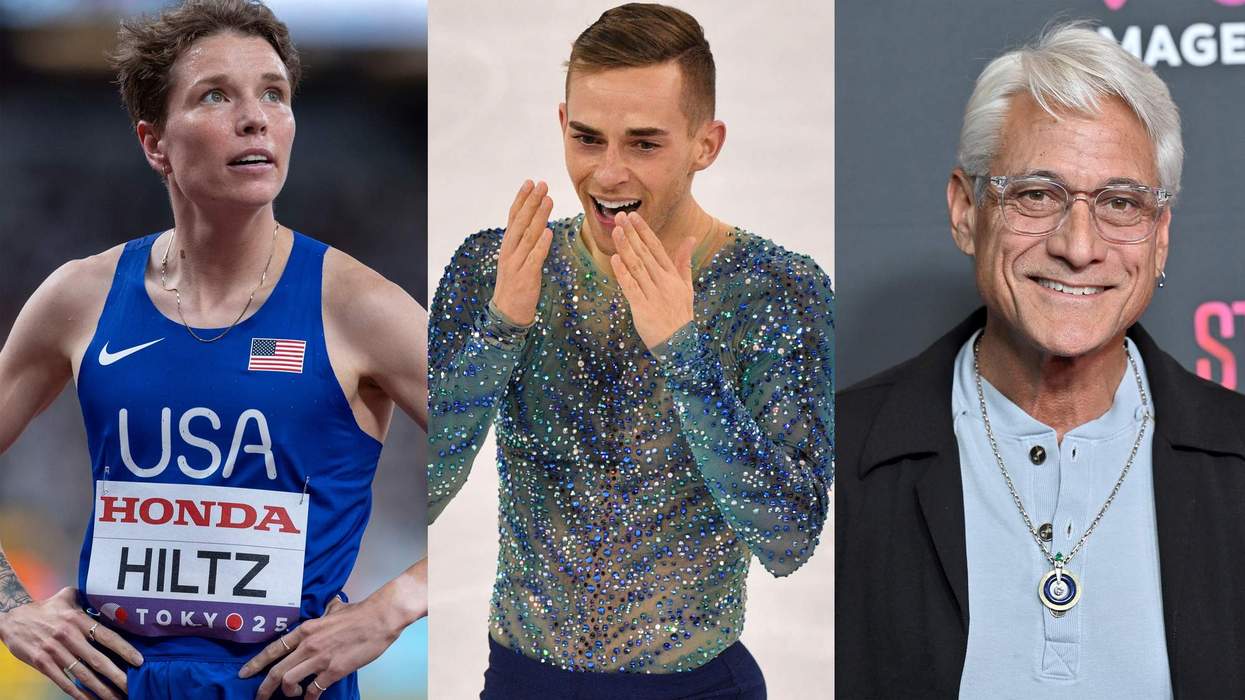
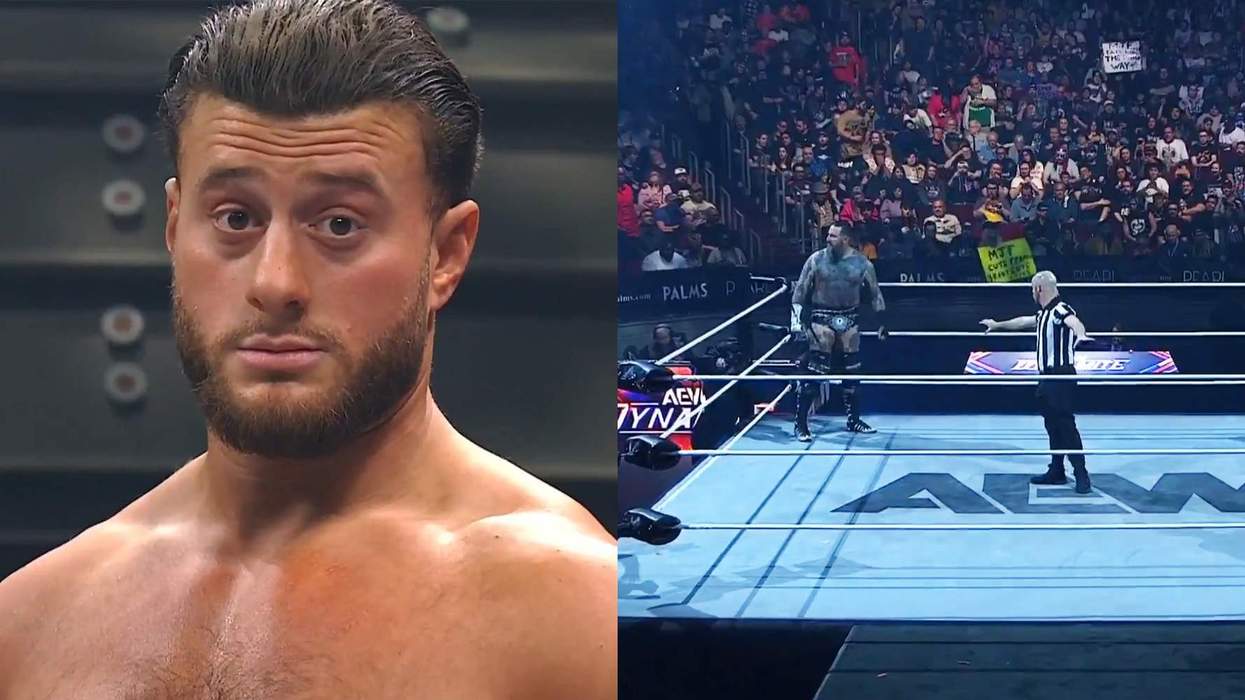
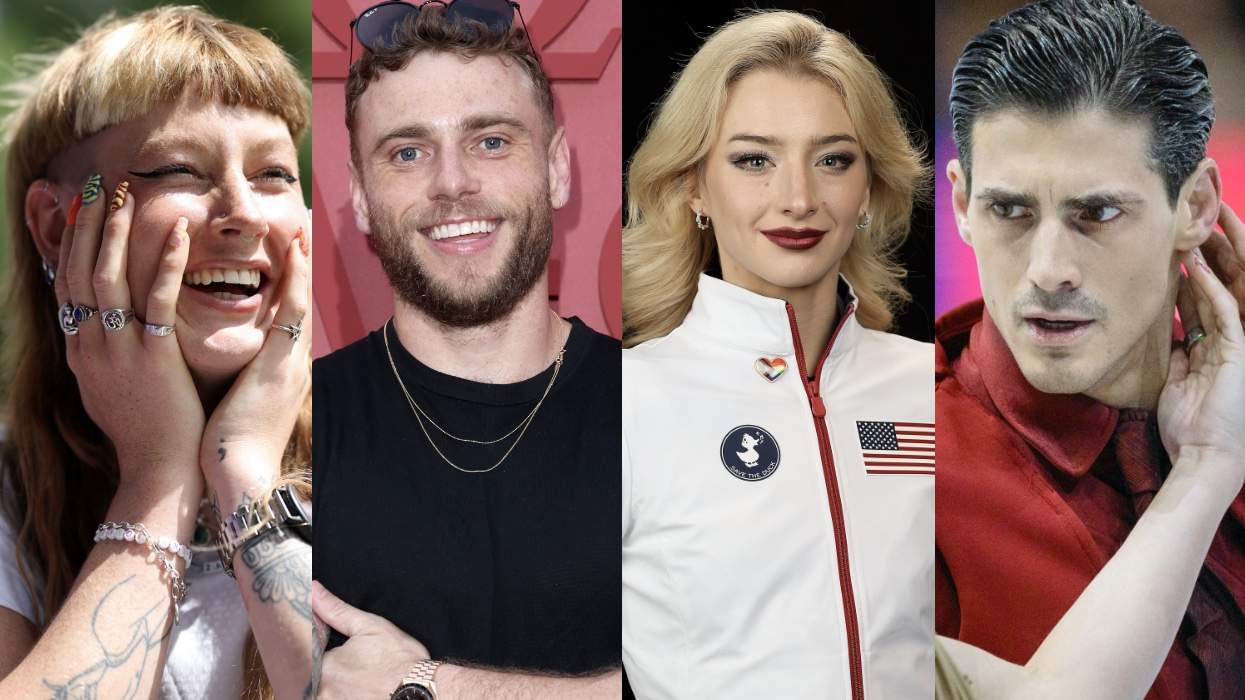
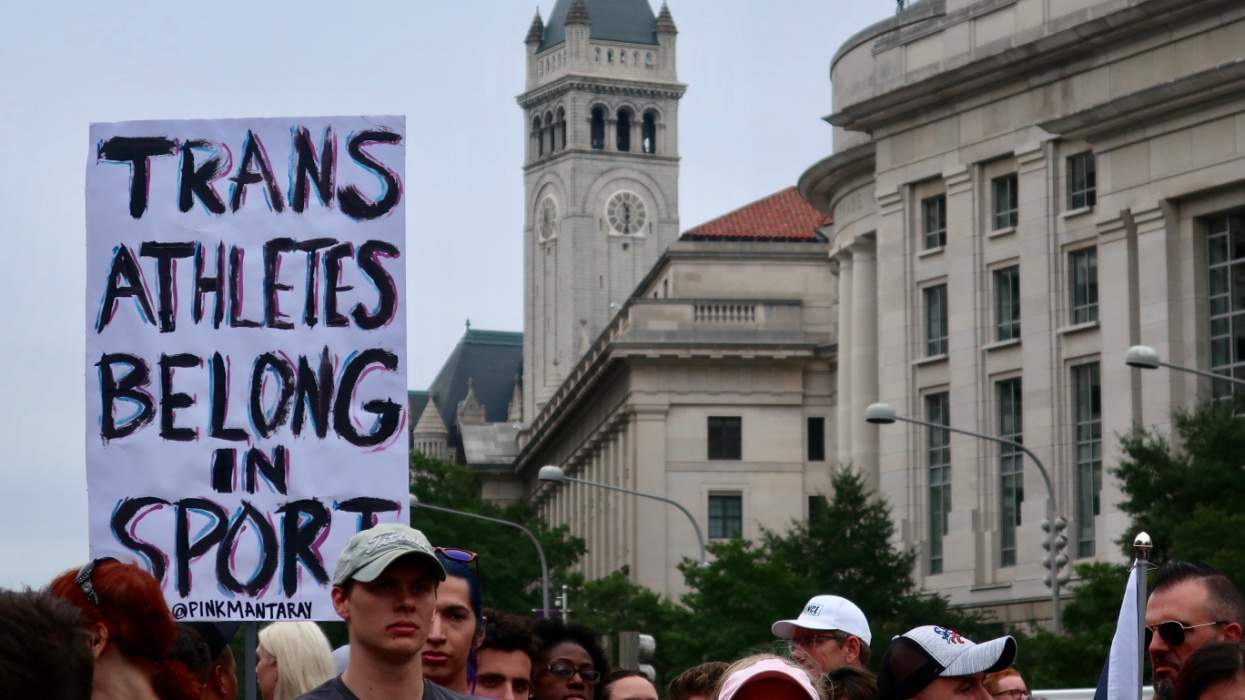
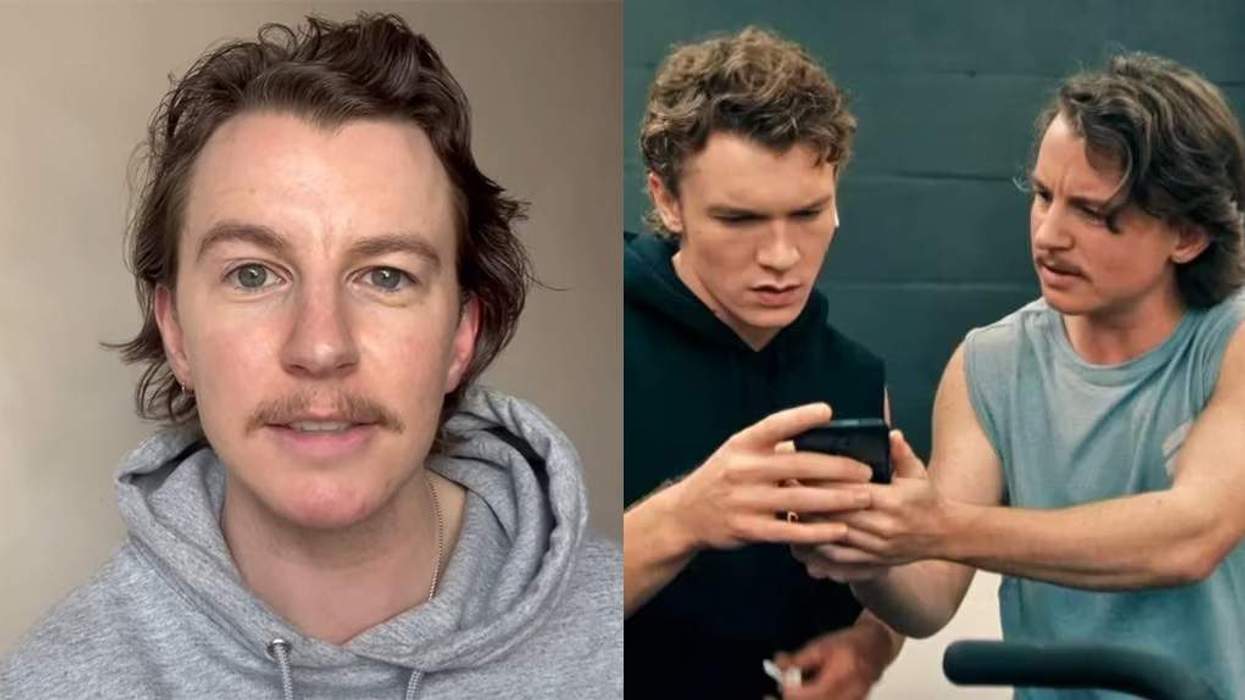





Charlie Kirk DID say stoning gay people was the 'perfect law' — and these other heinous quotes
These are some of his worst comments about LGBTQ+ people made by Charlie Kirk.